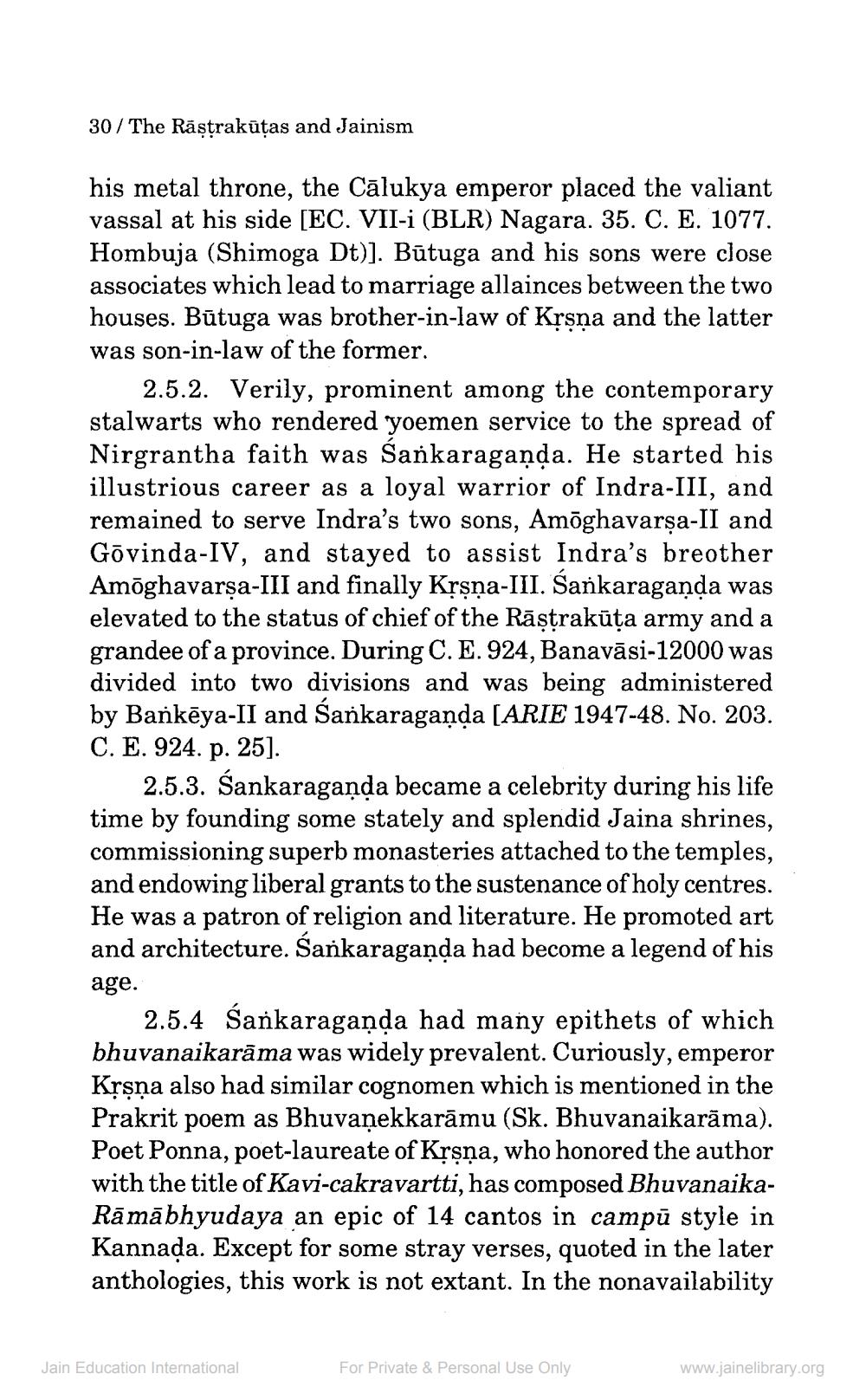________________
30/ The Râșțrakūtas and Jainism
his metal throne, the Cālukya emperor placed the valiant vassal at his side [EC. VII-i (BLR) Nagara. 35. C. E. 1077. Hombuja (Shimoga Dt)]. Būtuga and his sons were close associates which lead to marriage allainces between the two houses. Būtuga was brother-in-law of Krsna and the latter was son-in-law of the former.
2.5.2. Verily, prominent among the contemporary stalwarts who rendered yoemen service to the spread of Nirgrantha faith was Sankaraganda. He started his illustrious career as a loyal warrior of Indra-III, and remained to serve Indra's two sons, Amõghavarşa-II and Govinda-IV, and stayed to assist Indra's breother Amõghavarşa-III and finally Krsna-III. Sankaraganda was elevated to the status of chief of the Rāstrakūta army and a grandee of a province. During C. E. 924, Banavāsi-12000 was divided into two divisions and was being administered by Bankēya-II and Sankaraganda (ARIE 1947-48. No. 203. C. E. 924. p. 25].
2.5.3. Sankaraganda became a celebrity during his life time by founding some stately and splendid Jaina shrines, commissioning superb monasteries attached to the temples. and endowing liberal grants to the sustenance of holy centres. He was a patron of religion and literature. He promoted art and architecture. Sankaraganda had become a legend of his age.
2.5.4 Sankaraganda had many epithets of which bhuvanaikarāma was widely prevalent. Curiously, emperor Kṛṣṇa also had similar cognomen which is mentioned in the Prakrit poem as Bhuvanekkarāmu (Sk. Bhuvanaikarāma). Poet Ponna, poet-laureate of Krsna, who honored the author with the title of Kavi-cakravartti, has composed BhuvanaikaRāmābhyudaya an epic of 14 cantos in campū style in Kannada. Except for some stray verses, quoted in the later anthologies, this work is not extant. In the nonavailability
Jain Education International
For Private & Personal Use Only
www.jainelibrary.org




